The presentation here does raise some views that we can consider, however it also depends on the waste situation.
What do you think about such views?
Friday, April 2, 2010
Proper rubbish disposal options - Keep UQ refectories clean!
I had been firstly thinking on what would be the appropriate topic for this posting, and whilst still thinking about it, I have tentatively used ‘proper rubbish disposal options’ as the topic.
Deviating from my original idea of considering waste management and recycling in Port Moresby (PNG), my alternate is to re-look at the rubbish disposal methods – Keep the UQ refectories clean – and how I can relate it practically in a community-orientated project.
Coming from a top-down working environment, this project would be challenging, but then again whether it will have enough substance for me to consider it as a project.
Still floating my options…..
Deviating from my original idea of considering waste management and recycling in Port Moresby (PNG), my alternate is to re-look at the rubbish disposal methods – Keep the UQ refectories clean – and how I can relate it practically in a community-orientated project.
Coming from a top-down working environment, this project would be challenging, but then again whether it will have enough substance for me to consider it as a project.
Still floating my options…..
Waste management and recycling through community participation
I have been wondering whether this project will make sense in a community development and engagement perspective.My less or the lack of experience working in an community-orientated program or project is the reason for my confusion in whether theme of my project proposal makes sense.
I think I got myself into something that is common knowledge and that have been successfully accomplished elsewhere in most countries in the world, however I would like to relate this to my own community in my home country (PNG), more appropriately to the citizens of Port Moresby, where I live.
Like other developing countries, the issues of waste management and recycling are neglected or ignored creating dirty and polluted environment. Port Moresby with its accelerating population is faced up with issue, although not to the magnitude of other major cities in the developing countries.
Waste disposal is normally done at open disposal sites and recycling is not a priority since all waste or rubbish/trash of any nature are not separated prior to disposal.
In Port Moresby, household waste collection and disposal is supposed to be done on regular basis but sub-contracting by the city authority to local contractors has been problematic due to insufficient finance, transport, equipment and labour. Recycling of household waste is almost non-existant. Apart from collection of re-saleable aluminium cans, PET bottles and beer bottles and cans, all the household wastes are placed in rubbish bins for disposal.
Normally decisions on Waste Management and Recycling come from a higher level and have political and economic implications. The role in which the community play is by far just to ensure their household waste is taken out and placed in trash cans/rubbish bins to be picked up by the garbage disposal contractors.
In my study programs in New Delhi, India and here in Brisbane, I have noticed that there are specific wheelie bins (or the like) for specific materials. The recyclable materials have their own bins. In India, they have recyclable depots where waste/rubbish is sorted out in different bins/boxes from grass/leaves up to glass and metal.
From those observation and knowledge, I can look at the possibilities of emphasising the importance of proper waste disposal using appropriate measures whether it be open disposal sites – dump and burn, incineration, isolated and restricted dump sites, or land reclamation. Connecting the city authority with the local communities, we can encourage the involvement, engagement and participation of the local communities within each suburb to sort out household waste for recycling purposes and work towards a healthy and clean community and environment. Community participation and the involvement of the city authority to consider this issue would lessen the amount of disposable waste dumps in open sites, categorizing types of waste and considering other forms of disposal, creating recycling programs and projects, and involving and engaging local communities to clean up and take pride to keep their community clean and healthy. Usually local communities within each suburbs can be the best options to participate in sorting out recyclable waste.
Could this be a viable proposal in terms of community engagement and participation? Just a thought but may look at other pressing issues of community engagement……
I think I got myself into something that is common knowledge and that have been successfully accomplished elsewhere in most countries in the world, however I would like to relate this to my own community in my home country (PNG), more appropriately to the citizens of Port Moresby, where I live.
Like other developing countries, the issues of waste management and recycling are neglected or ignored creating dirty and polluted environment. Port Moresby with its accelerating population is faced up with issue, although not to the magnitude of other major cities in the developing countries.
Waste disposal is normally done at open disposal sites and recycling is not a priority since all waste or rubbish/trash of any nature are not separated prior to disposal.
In Port Moresby, household waste collection and disposal is supposed to be done on regular basis but sub-contracting by the city authority to local contractors has been problematic due to insufficient finance, transport, equipment and labour. Recycling of household waste is almost non-existant. Apart from collection of re-saleable aluminium cans, PET bottles and beer bottles and cans, all the household wastes are placed in rubbish bins for disposal.
Normally decisions on Waste Management and Recycling come from a higher level and have political and economic implications. The role in which the community play is by far just to ensure their household waste is taken out and placed in trash cans/rubbish bins to be picked up by the garbage disposal contractors.
In my study programs in New Delhi, India and here in Brisbane, I have noticed that there are specific wheelie bins (or the like) for specific materials. The recyclable materials have their own bins. In India, they have recyclable depots where waste/rubbish is sorted out in different bins/boxes from grass/leaves up to glass and metal.
From those observation and knowledge, I can look at the possibilities of emphasising the importance of proper waste disposal using appropriate measures whether it be open disposal sites – dump and burn, incineration, isolated and restricted dump sites, or land reclamation. Connecting the city authority with the local communities, we can encourage the involvement, engagement and participation of the local communities within each suburb to sort out household waste for recycling purposes and work towards a healthy and clean community and environment. Community participation and the involvement of the city authority to consider this issue would lessen the amount of disposable waste dumps in open sites, categorizing types of waste and considering other forms of disposal, creating recycling programs and projects, and involving and engaging local communities to clean up and take pride to keep their community clean and healthy. Usually local communities within each suburbs can be the best options to participate in sorting out recyclable waste.
Could this be a viable proposal in terms of community engagement and participation? Just a thought but may look at other pressing issues of community engagement……
Realisation
Considering my choice to take up studies in Masters in Development Practice (Advanced) programme at the University of Queensland in 2009 following up from an earlier PostGraduate Diploma in Planning (Third World) in 1997, it has placed me in an open perspective to understand the normal livelihood of people, their hardships and struggles, absolute poverty, increasing population growth, traffic congestion and pollution, political oppression, Rostow’s model of development, neo-liberalism, foreign direct investment, climatic change and the endless list of matters that generally evolve with the changing times.
Taking up the community development courses under the MDP (Adv) program, it is beginning to open up another perspective of realising how important it is to involve or work amongst communities to enable better livelihood and social interaction for better harmonious lifestyle. Although my professional work as an physical planner required a lot of community-orientated interaction, the system under which we operated promoted a more ‘top-down’ and ‘inside-out’ approach, hence my involvement in actual community-orientated work is very minimal. As such I lack experience in dealing directly with communities. As a rural-orientated person, my village community is a dynamic community that I live in, however my direct input as an educated and knowledgeable person is not realised within.
I have always been part of a community as traditional families ties and community living has been an integral part of my traditional culture. However, I have not work within the larger community to explore needs, and create and promote awareness in what I have learnt or what I do in my professional work.
Community development courses are helping me to identify areas that I have failed in understanding and where I can explore and practically involve in. Now I realise that direct participation in community planning, community development, engagement and participation enables the world to come to stand in unity amidst diversity to strive for a better living, healthy, peaceful and harmonious environment.
Taking up the community development courses under the MDP (Adv) program, it is beginning to open up another perspective of realising how important it is to involve or work amongst communities to enable better livelihood and social interaction for better harmonious lifestyle. Although my professional work as an physical planner required a lot of community-orientated interaction, the system under which we operated promoted a more ‘top-down’ and ‘inside-out’ approach, hence my involvement in actual community-orientated work is very minimal. As such I lack experience in dealing directly with communities. As a rural-orientated person, my village community is a dynamic community that I live in, however my direct input as an educated and knowledgeable person is not realised within.
I have always been part of a community as traditional families ties and community living has been an integral part of my traditional culture. However, I have not work within the larger community to explore needs, and create and promote awareness in what I have learnt or what I do in my professional work.
Community development courses are helping me to identify areas that I have failed in understanding and where I can explore and practically involve in. Now I realise that direct participation in community planning, community development, engagement and participation enables the world to come to stand in unity amidst diversity to strive for a better living, healthy, peaceful and harmonious environment.
I welcome you all to my new blog site, and as it is my first blogging experience, I hope I can be able to draw your support, comments and contribution
I welcome you all to my new blog site, and as it is my first blogging experience, I hope I can be able to draw your support, comments and contributions on general views and information that could help achieve the intentions of the blog site.
This blog site is mainly for my postgraduate coursework that I am undertaking: SWSP7123: Community Planning; Engagement & Governance. Whatever that transpires within should be closely related and link with COMMUNITY DEVELOPMENT and COMMUNITY PLANNING ISSUES. The issues should also be more relevant and appropriate to the topics of discussion presented.
I also welcome useful comments that can meaningfully contribute the topic of discussion.
Happy blogging!!
This blog site is mainly for my postgraduate coursework that I am undertaking: SWSP7123: Community Planning; Engagement & Governance. Whatever that transpires within should be closely related and link with COMMUNITY DEVELOPMENT and COMMUNITY PLANNING ISSUES. The issues should also be more relevant and appropriate to the topics of discussion presented.
I also welcome useful comments that can meaningfully contribute the topic of discussion.
Happy blogging!!
Subscribe to:
Comments (Atom)


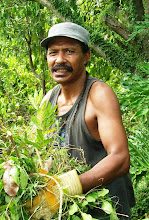




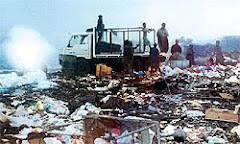
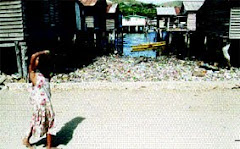
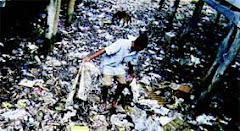

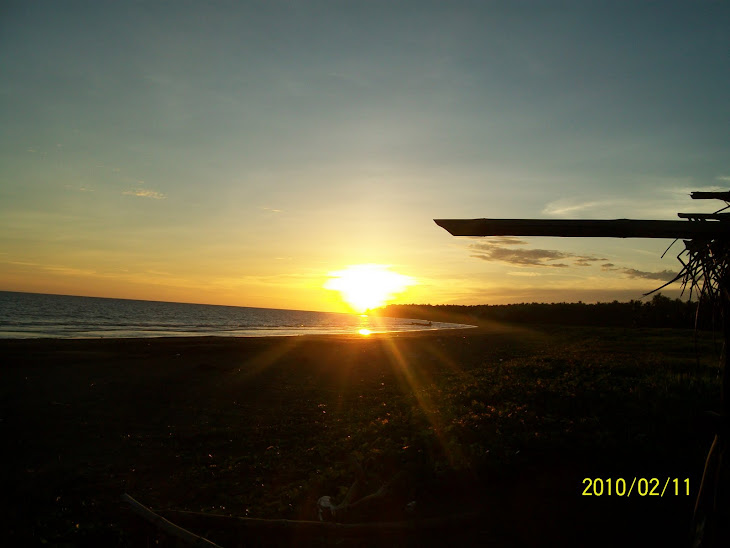.jpg)